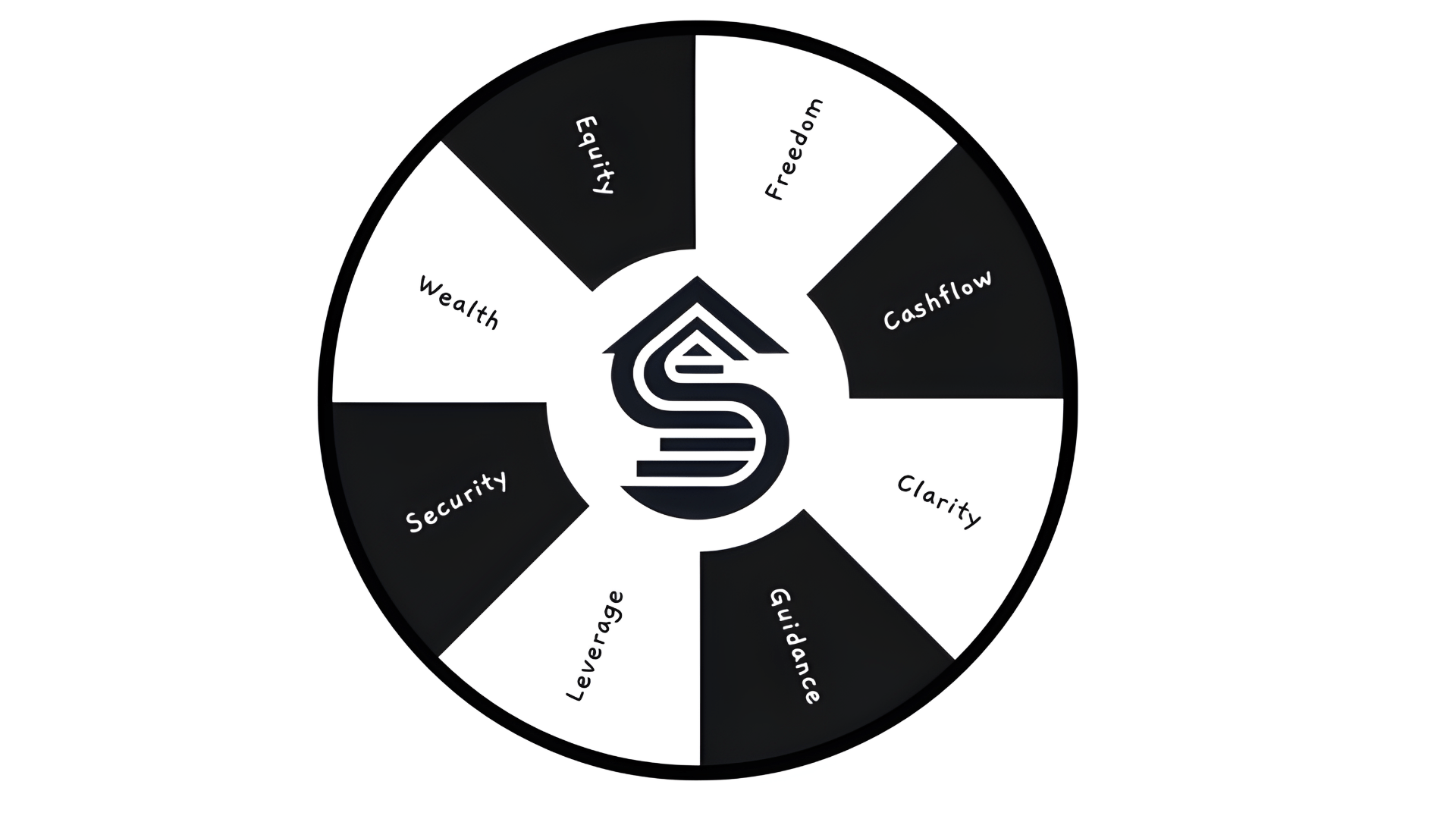
Hard Money Loan Cash-Out Refinance: Healthcare Administrator Rescues Inherited Property from Foreclosure and Prepares for Sale

Educational Case Study Disclosure
This case study is hypothetical and for educational purposes only. Scenarios, borrower profiles, loan terms, interest rates, and outcomes are illustrative examples and do not represent current offers or guaranteed terms.
For specific details including down payment requirements, closing cost estimates, interest rate details, closing cost breakdowns, payment calculations, cash-to-close estimates, or an official Loan Estimate, it is highly recommended you schedule a meeting with one of our licensed mortgage advisors.
Learn more:
- Hard money loan cash-out refinance Reg Z advertising requirements (§1026.24) – CFPB official regulation
- Hard money loan cash-out refinance Reg Z full text and compliance – Electronic Code of Federal Regulations
- Official hard money loan cash-out refinance advertising interpretations (§1026.24) – CFPB interpretations
- Hard money loan cash-out refinance MAP Rule (Reg N) mortgage advertising – Mortgage advertising rules
- NMLS Consumer Access – Verify hard money loan cash-out refinance lender licensure
Actual loan terms vary by credit profile, property, occupancy, location, market conditions, and lender guidelines. For current options tailored to you, schedule a consultation or apply online.
Ready to explore your options? Schedule a call with a loan advisor.
Discover How Hard Money Loan Cash-Out Refinance Saved This Property and Avoided Foreclosure
Patricia M., a 48-year-old healthcare administrator living in Atlanta, unexpectedly inherited a single-family home in Jacksonville, Florida when her aunt passed away. The property had been her aunt’s primary residence for decades and carried only a modest remaining mortgage balance—leaving substantial equity in the home. Patricia’s aunt had owned the property responsibly, maintaining it well and making all payments on time for years.
Patricia initially planned to hold the property as a long-term rental investment—the Jacksonville home was clearly not her primary residence, as Patricia owned her home in Atlanta where she lived and worked. Living several states away with demanding responsibilities managing a hospital department, she hired a property management company to handle tenant placement and maintenance. The property was rented to tenants who passed initial screening with acceptable credit and rental history.
What Patricia didn’t anticipate was a nightmare tenant situation that would spiral out of control over the next year—threatening the property with foreclosure, destroying her aunt’s well-maintained home, and jeopardizing the substantial equity she had inherited. Within months, Patricia went from being a responsible inherited property owner to facing financial catastrophe, with traditional lenders offering no solutions for her time-sensitive crisis.
CRITICAL NOTE: Hard Money Loan Cash-Out Refinance Eligibility
Hard money loan cash-out refinance is NOT available for primary residences. Patricia qualified for this rescue financing because the Jacksonville property was clearly not her primary residence—she lived in Atlanta and owned her primary home there. Hard money lenders do not finance owner-occupied properties due to homeowner protection rights and consumer protection regulations.
Hard money financing is only possible for:
- Properties owned in an LLC (business entity)
- Investment properties clearly not used as primary residence
Lenders verify non-primary-residence status through photo ID showing different address, mortgage statements or lease agreements proving the borrower lives elsewhere, and documentation showing the subject property is investment, rental, or inherited property.
Facing similar challenges? Schedule a call to explore your options.
The Challenge: How Problem Tenants and Missed Payments Created a Foreclosure Crisis
Patricia’s tenant nightmare began just three months after renting the property. The tenants stopped paying rent entirely but refused to vacate the property. As an out-of-state owner dealing with Florida eviction laws, Patricia found herself in a frustrating legal process that dragged on for months.
Why Did Patricia Fall Behind on Mortgage Payments?
With tenants occupying the property rent-free and generating zero income, Patricia had to cover the mortgage payment, property taxes, insurance, and maintenance costs entirely from her personal salary in Atlanta. Between her own living expenses, her mortgage payment on her primary residence in Georgia, and the unexpected burden of carrying the inherited Jacksonville property without rental income, Patricia’s finances became severely strained.
“I couldn’t afford to pay two mortgages indefinitely on my salary,” Patricia explained. “The eviction process took forever—Florida tenant laws heavily favor tenants, even ones who aren’t paying rent. My property manager kept saying ‘just a few more weeks’ but it stretched on for months. Eventually, I had to make impossible choices about which bills to pay.”
Patricia fell significantly behind on the Jacksonville property mortgage payments—missing multiple months while the eviction process crawled through the courts. The bank sent default notices, then foreclosure warnings. Property taxes went unpaid. Insurance premiums lapsed. The situation deteriorated rapidly from a manageable rental property to a full-blown financial crisis.
What Condition Was the Property in After Problem Tenants?
When Patricia finally regained possession of the property through the eviction process, she discovered the tenants had caused extensive damage. The home her aunt had maintained immaculately for decades was now severely damaged and uninhabitable without significant rehabilitation work.
“I walked into what had been my aunt’s beautiful home and almost cried,” Patricia said. “Holes punched in walls, carpets destroyed and stained beyond repair, appliances missing, plumbing issues, broken windows, trash and debris everywhere. The property that had been in pristine condition when I inherited it was now a disaster that would require substantial rehabilitation before I could even list it for sale, let alone rent it to quality tenants.”
Why Couldn’t Traditional Lenders Help Patricia?
Patricia contacted multiple conventional mortgage lenders hoping to refinance the property, pay off the back payments, and access equity to fund necessary repairs. Every traditional lender rejected her application immediately for multiple reasons:
Traditional lender disqualifications:
- Significant missed payments on existing mortgage
- Property in damaged, uninhabitable condition failing inspection standards
- Foreclosure proceedings already initiated by existing lender
- Property couldn’t qualify for conventional appraisal in current state
- Time-sensitive situation requiring immediate funding
“Traditional lenders told me I needed to bring the mortgage current first before they’d consider refinancing,” Patricia explained. “But I didn’t have the funds to catch up on months of missed payments, pay the back taxes and insurance, AND fund the rehabilitation work needed. It was an impossible catch-22. Without help, I was going to lose the property to foreclosure and lose all the substantial equity my aunt had built over decades.”
What Options Did Patricia Consider?
Patricia explored several alternatives to rescue the situation:
Option 1: Sell as-is in damaged condition – Would result in substantially reduced sale price, potentially insufficient to cover mortgage balance, back payments, and liens after accounting for property damage devaluation
Option 2: Personal loan to catch up payments – Couldn’t qualify due to already strained debt-to-income ratio from carrying two mortgages, and personal loans wouldn’t provide enough capital for both back payments and rehabilitation costs
Option 3: Let property go to foreclosure – Would destroy her credit, lose all inherited equity, potentially face deficiency judgment, and dishonor her aunt’s decades of responsible homeownership
Option 4: Family loans – No family members had sufficient liquid capital to provide the substantial funding needed for back payments, taxes, insurance, and rehabilitation work
None of these options preserved the substantial equity in the property while stopping the foreclosure process and funding necessary repairs to prepare the property for sale at appropriate market value.
Experiencing similar crisis? Schedule a call to discuss rescue financing options.
The Discovery: How Patricia Found Hard Money Loan Cash-Out Refinance Solutions
Patricia discovered hard money loan cash-out refinance programs through her real estate attorney who was helping with the eviction proceedings. The attorney had seen similar distressed situations rescued by hard money lenders who specialize in property emergencies that traditional lenders won’t touch.
“My attorney explained that hard money lenders focus on the property’s underlying value and equity position rather than payment history, credit scores, or property condition,” Patricia said. “He referred me to a hard money lender who had helped several of his other clients in similar foreclosure situations. That conversation gave me hope for the first time in months.”
What Makes Hard Money Loan Cash-Out Refinance Different from Traditional Refinancing?
The hard money loan advisor explained that hard money lenders operate fundamentally differently from conventional mortgage lenders. While traditional lenders focus heavily on borrower credit, income verification, payment history, and property condition meeting appraisal standards, hard money lenders primarily evaluate the property’s underlying value and equity position.
Hard money loan cash-out refinance programs can fund quickly—often within days or weeks rather than months—making them ideal for time-sensitive situations like stopping foreclosure. These lenders accept properties in damaged or uninhabitable condition that conventional lenders automatically reject, understanding that borrowers often need cash-out proceeds specifically to fund rehabilitation work.
How Do Hard Money Lenders Evaluate Distressed Property Situations?
“The hard money lender looked past my missed payments and the property’s current damaged condition,” Patricia explained. “Instead, they focused on the after-repair value of the property, the substantial equity position, and my clear exit strategy to rehabilitate and sell. They understood I needed rescue financing to stop the foreclosure, catch up back payments, and fund repairs—exactly the situation hard money loans are designed for.”
Why Was Patricia’s Property Eligible for Hard Money Loan Cash-Out Refinance?
A critical factor in Patricia’s approval was that the Jacksonville property was clearly not her primary residence. Patricia lived in Atlanta, Georgia, where she owned her primary home and worked at the hospital. The inherited Jacksonville property was an investment property she had attempted to rent.
Hard money loans are NOT available for primary residences. Hard money lenders will not finance owner-occupied properties due to homeowner protection rights and the extensive consumer protection regulations that apply to primary residence financing. These lender protections make primary residence hard money loans legally complex and risky for lenders.
Hard money loan cash-out refinance is only possible for:
- Properties owned in an LLC (business entity ownership)
- Properties clearly not being used as primary residence, verified through:
- Photo ID showing primary home address different from subject property
- Current mortgage statement or lease agreement confirming borrower lives elsewhere
- Documentation proving the subject property is investment, rental, or inherited property
In Patricia’s case, her Georgia driver’s license, her Atlanta primary residence mortgage statement, and the inherited property documentation all clearly proved the Jacksonville property was not her primary residence—making it eligible for hard money financing.
“The lender verified I lived in Atlanta through my driver’s license and my primary residence mortgage statement,” Patricia said. “Once they confirmed the Jacksonville property wasn’t my primary home, we could move forward with the hard money loan. If this had been my primary residence, hard money financing wouldn’t have been an option due to homeowner protection laws.”
The advisor outlined a hard money cash-out refinance structure that would:
- Pay off the existing mortgage balance including all back payments
- Cover delinquent property taxes and insurance premiums
- Provide substantial cash-out proceeds for property rehabilitation
- Stop foreclosure proceedings immediately upon funding
- Give Patricia time to complete repairs and list the property for sale
- Require no monthly payments during the short hold period (interest rolled into loan)
For the first time since the tenant nightmare began, Patricia saw a clear path to rescue the property, preserve her inherited equity, and sell the home at appropriate market value rather than losing everything to foreclosure.
The Solution: Hard Money Loan Cash-Out Refinance Approval and Funding
Patricia worked with her hard money loan advisor to structure a rescue financing package that addressed every aspect of her crisis situation. The process moved remarkably quickly compared to her futile attempts with traditional lenders.
What Documentation Did Patricia Provide for Hard Money Loan Cash-Out Refinance?
Hard money lenders require far less documentation than conventional mortgages, focusing primarily on property value and equity position:
Property documentation:
- Property address and legal description
- Current mortgage statement showing outstanding balance
- Property tax records showing assessed value
- Recent comparative market analysis from local real estate agent
- After-repair value estimate based on comparable sales
- Scope of work for rehabilitation with cost estimates
- Clear title or title search showing ownership and liens
Borrower documentation (minimal):
- Photo identification and proof of property ownership
- Photo ID showing primary residence address different from subject property (Patricia’s Georgia driver’s license)
- Mortgage statement or lease proving borrower lives elsewhere (Patricia’s Atlanta home mortgage statement)
- Basic income verification showing ability to cover ongoing carrying costs temporarily
- Exit strategy explanation (rehabilitate and sell within specific timeframe)
Financial documentation:
- Details of all back payments, taxes, and insurance owed
- Rehabilitation budget and contractor estimates
- Foreclosure notices and timeline from existing lender
“The documentation process was refreshingly straightforward,” Patricia said. “No extensive tax returns, no employment verification packages, no credit scrutiny. The hard money lender cared about the property’s value and my clear plan to fix and sell—that was it.”
How Long Does Hard Money Loan Cash-Out Refinance Take to Fund?
The hard money lender moved at emergency speed to stop Patricia’s foreclosure:
- Initial consultation – Reviewed property crisis and rescue financing needs (Day 1)
- Property evaluation – Lender assessed current condition and after-repair value (Day 2-3)
- Loan structure proposal – Terms and funding amount presented (Day 4)
- Application submission – Minimal paperwork submitted (Day 5)
- Title search ordered – Confirmed ownership and lien positions (Day 5-7)
- Loan approval – Approved based on equity position and exit strategy (Day 8)
- Closing scheduled – Coordinated quick closing to stop foreclosure (Day 10)
- Funding completed – Cash-out refinance closed and funded (Day 12)
What Terms Did the Hard Money Loan Cash-Out Refinance Provide?
Patricia’s hard money loan cash-out refinance rescue package included:
- Conservative loan-to-value ratio based on current as-is value with substantial remaining equity cushion
- Short-term loan structure designed for property rehabilitation and sale within specific timeframe
- Interest-only or no payment structure during rehabilitation period (interest accrues to loan balance)
- Substantial cash-out proceeds covering back payments, taxes, insurance, and full rehabilitation budget
- Flexible terms understanding the property exit strategy is sale after repairs
- Fast closing timeline stopping foreclosure proceedings immediately
- No prepayment penalties encouraging quick payoff after property sale
The rescue financing covered:
- Full payoff of existing mortgage including all back payments
- All delinquent property taxes and insurance premiums
- Substantial cash-out for complete property rehabilitation
- Closing costs and fees for the refinance transaction
- Small reserve for carrying costs during rehabilitation and listing period
“The hard money lender structured the loan to solve every problem simultaneously,” Patricia explained. “One closing, one transaction, and suddenly the foreclosure stopped, all back payments were current, I had the funds to completely rehabilitate the property, and I had breathing room to get it fixed, listed, and sold properly at market value instead of losing everything.”
Exploring rescue financing? Submit a refinance inquiry to discuss time-sensitive situations.
The Results: Property Rescued, Rehabilitated, and Successfully Sold
Patricia closed her hard money loan cash-out refinance just days before the scheduled foreclosure auction. The transaction immediately stopped all foreclosure proceedings, brought all obligations current, and provided the capital needed to transform the damaged property back into the beautiful home it had been when she inherited it.
What Results Did Patricia Achieve with Hard Money Loan Cash-Out Refinance?
Immediate crisis resolution:
- Foreclosure proceedings stopped immediately upon funding
- Existing mortgage paid off including all back payments
- Property taxes and insurance brought completely current
- All liens and delinquencies cleared from title
- Patricia regained clear ownership without foreclosure threat
Property rehabilitation completed:
- Hired reputable contractors immediately with cash-out proceeds
- Completed full interior rehabilitation including flooring, paint, repairs
- Fixed all plumbing, electrical, and mechanical issues
- Replaced damaged appliances and fixtures
- Restored property to excellent, market-ready condition
- Rehabilitation completed within reasonable timeframe
Successful property sale:
- Listed property at appropriate market value after rehabilitation
- Multiple offers received within weeks of listing
- Sold at strong price reflecting rehabilitated condition and market value
- Closing proceeds paid off hard money loan in full
- Patricia received substantial net proceeds after all payoffs
How Did Hard Money Loan Cash-Out Refinance Compare to Traditional Financing?
Traditional lender attempts vs. hard money loan cash-out refinance:
- Traditional lender qualification: Rejected by all conventional lenders
- Hard money lender qualification: Approved and funded within days
- Funding timeline: Traditional would take months if possible at all; hard money funded in under two weeks
- Property condition requirements: Traditional required good condition; hard money accepted as-is damaged condition
- Payment history requirements: Traditional required current payments; hard money worked with missed payments
- Solution provided: Traditional offered no solution; hard money rescued entire situation
Financial outcome comparison:
Foreclosure scenario (without rescue financing):
- Property lost to foreclosure auction
- Substantial equity lost completely
- Credit destroyed for years
- Potentially faced deficiency judgment
- Aunt’s decades of responsible homeownership dishonored
Hard money rescue scenario (actual outcome):
- Property saved from foreclosure
- Full rehabilitation funded and completed
- Property sold at appropriate market value
- Substantial net proceeds received after loan payoff
- Credit preserved, equity preserved, aunt’s legacy honored
“The hard money loan cash-out refinance saved me from financial catastrophe,” Patricia said. “Without that rescue financing, I would have lost the property to foreclosure, lost all the substantial equity my aunt had built over decades, destroyed my credit, and felt like I had completely failed my aunt’s legacy. Instead, I was able to restore the property she loved, sell it for appropriate value, walk away with significant proceeds, and preserve my financial standing.”
What Did Patricia Learn from This Experience?
“This experience taught me several critical lessons,” Patricia reflected. “First, out-of-state property ownership is far more challenging than I anticipated—especially when tenant problems arise. Second, traditional financing options completely fail in crisis situations, leaving property owners with no conventional solutions. Third, hard money lenders serve an essential purpose in the real estate market by providing rescue financing when traditional lenders walk away.”
Patricia used the net proceeds from the property sale to strengthen her emergency fund and invest in more liquid, passive investments rather than becoming a landlord again. The experience taught her to respect the challenges of property management and the value of understanding all financing options—including alternative lending solutions—before emergencies arise.
“I’m grateful I found hard money financing before it was too late,” Patricia said. “That loan saved my financial future and allowed me to honor my aunt’s decades of responsible homeownership by ensuring the property was restored and sold properly. I’ll never forget how quickly the hard money lender moved when I was just days away from losing everything. They understood urgency in a way traditional lenders never could.”
Ready to get started? Get approved or schedule a call to discuss your urgent situation.
Exploring Other Hard Money Loan Options?
While Patricia used hard money cash-out refinance for foreclosure rescue and rehabilitation funding, hard money financing works for multiple time-sensitive scenarios:
- Need quick purchase financing? See how an investor used hard money purchase loan for fast acquisition
- Rehabilitating a flip property? Learn how a contractor used hard money for property renovation
- View all case studies to find success stories matching your situation
Key Takeaways for Property Owners in Distressed Situations
- Hard money loan cash-out refinance is NOT available for primary residences—these loans are only possible for investment properties, rental properties, or properties clearly not being used as primary residence, verified through photo ID, mortgage statements, or lease agreements showing the borrower lives elsewhere; hard money lenders avoid primary residences due to homeowner protection rights and extensive consumer protection regulations
- Hard money loan cash-out refinance provides rescue financing when traditional lenders reject distressed situations—lenders focus on property equity and exit strategy rather than payment history, credit scores, or current property condition, making them ideal for foreclosure prevention and emergency rehabilitation funding on investment properties (FHA foreclosure prevention resources)
- Speed is critical in foreclosure situations—hard money lenders can fund within days or weeks rather than months, stopping foreclosure proceedings before scheduled auctions and preserving borrower equity (Understanding foreclosure timelines and processes)
- Out-of-state property ownership carries significant risks—distance makes tenant management, property maintenance, and crisis response substantially more challenging than local property ownership, requiring either excellent property management partners or strong contingency planning
- Exit strategy matters for hard money financing—lenders want clear plans for loan repayment within short timeframes, whether through property sale, refinancing to conventional loans after rehabilitation, or other defined exit paths
- Hard money loans serve specific short-term needs—these are not long-term financing solutions but rather rescue and bridge financing designed to solve immediate problems, fund quick rehabilitations, or provide time-sensitive capital access when conventional financing fails
Have questions about hard money loan cash-out refinance for distressed situations? Schedule a call with a loan advisor today.
Alternative Loan Programs for Property Rescue and Rehabilitation
If hard money cash-out refinance isn’t the perfect fit, consider these alternatives:
- Bridge Loan – Short-term financing for property transitions
- Fix and Flip Loan – Specialized financing for property rehabilitation and resale
- Hard Money Purchase Loan – Fast acquisition financing for time-sensitive purchases
- Portfolio Loan – Alternative financing for unique property situations
- Asset-Based Loan – Qualify based on assets rather than income or credit
Explore all loan programs to find your best emergency financing solution.
Helpful Hard Money Loan Cash-Out Refinance Resources
Learn more about this loan program:
- Complete Hard Money Loan Guide – Detailed requirements, rates, and qualification guidelines
- Hard Money Loan Calculator – Estimate your potential funding and costs
Similar success stories:
- How an investor used hard money purchase loan for fast property acquisition – Quick closing success story
- Contractor uses hard money for property flip rehabilitation – Renovation financing success
- View all case studies – Browse by your situation
External authoritative resources:
- FHA foreclosure prevention resources – Understanding foreclosure alternatives
- Understanding foreclosure timelines and processes – Consumer Financial Protection Bureau guidance
- Rental property management best practices – IRS rental property guidelines
Ready to get started?
- Apply online – Start your application for urgent financing
- Schedule a consultation – Discuss your distressed property situation
- Take the discovery quiz – Clarify your immediate financing needs
Need local expertise? Get introduced to trusted partners including real estate attorneys, contractors, and property management professionals in your area.
Need a Pre-Approval Letter—Fast?
Buying a home soon? Complete our short form and we’ll connect you with the best loan options for your target property and financial situation—fast.
- Only 2 minutes to complete
- Quick turnaround on pre-approval
- No credit score impact
Got a Few Questions First?
Not Sure About Your Next Step?
Skip the guesswork. Take our quick Discovery Quiz to uncover your top financial priorities, so we can guide you toward the wealth-building strategies that fit your life.
- Takes just 5 minutes
- Tailored results based on your answers
- No credit check required
Related Posts
Subscribe to our newsletter
Get the latest insights and mortgage case studies in your inbox.





